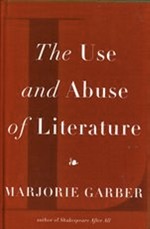Thursday, January 19
5:50 am
It is -19 °C, with a high forecast of -18 °C.
From the Environment Canada website:
Today Cloudy with 60 percent chance of flurries. High minus 18.
Tonight Mainly cloudy. 30 percent chance of flurries this evening and after midnight. Low minus 25.

Normals: Max. -2 °C Min. -14 °C.
7:00 PM Literature
The last time I was in Toronto I bought a book on Literature Theory. The book was on display as one entered the store and it caught my eye. I began reading it this afternoon and am intrigued with how my reading unfolded. Although I have read many books I have never read any on the topic of literature itself. This is a first.

After reading about a dozen pages I realized that I was not sure where the author was going, so I started over. This time I tried summarizing each paragraph with a single sentence. Here are my notes:
1. Introduction
The 2002 US census indicated that people were reading less. Under half of US population is now reading literature. Literature was defined as fiction, nonfiction was considered as not literature. The OED first used literature to mean a written work, instead of a personal characteristic, in 1812. At one time literature meant a body of specialized knowledge. Literature has also meant anything involving words (e.g. pamphlets, papers, ...)
Thus the term Literature has had, and still has, many meanings.
The author plans to emphasize the Use of literature, NOT as an instrument of moral or cultural control, nor as an infusion of pleasure, but rather as a way of thinking.
2. Literature, Then & Now
When most people could not read or write, one who could was prized. The 19th century made celebrities of some of its writers. Today writers are praised by a smaller sub-section of society. A US poll in 2002 indicated a total absence of the classics.
What is the use of literature?
- utilitarian (better citizens, more ethically tuned reasoners)
- affective (pleasure)
"The only condition that I can think of attaching to the composition of the novel is ... that it be interesting." Henry James.
At this point I was impressed with the number of references to authors and/or their writings. About 50 different names were mentioned in the space of about 30 pages. This could intimidate one if the names failed to conjure up any recognition but it did drive home the point that the author knew of what she spoke.
Then she provided a brief outline of Literary Study. Recognizing that there is no universal, clear distinction among the various terms and labels, she goes on to say that there are three main sub-groups: Literary Criticism, Literary Theory, and Literary History.
The middle term gave me trouble. I had no idea what Literary Theory might mean. Time for a little google. Wikipedia says "Literary theory in a strict sense is the systematic study of the nature of literature and of the methods for analyzing literature." In reading the remainder of this entry I found links to close reading (which is very similar to an article I wrote on slow reading for an Ausweb conference) and also to the evolutionary psychology of religion (which is very similar to my comments yesterday on Hitchens' book).
The last paragraph of the first chapter: "We do literature a real disservice if we reduce it to knowledge or to use, to a problem to be solved. ... At a time when meanings are manifold, disparate, and always changing, the rich possibility of interpretation - the happy resistance of the text to ever be fully known and mastered - is one of the most exhilarating products of human culture." [p. 30]
I think I am going to enjoy this book.
9:00 PM Literature
I am entering dangerous territory.
Having read the first chapter of Marjorie Garber's "The Use and Abuse of Literature", I turned to the back cover and noted the comments on her book, "Shakespeare After All".
I then went to the amazon.com web site and quickly found that the book was available as an ebook for $9.99. Incredible, since it is about a thousand pages. Done.